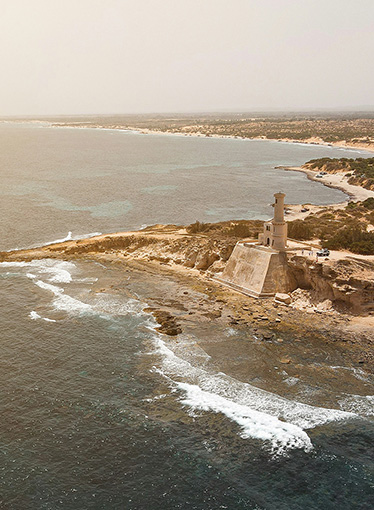Evacuations from Israel and High-Risk Locations Call +44 (0)1202 308810 or Contact Us →

Terror Attack on Libyan Election Headquarters
3 May 2018
On 02 May 2018, militants attacked Libya’s electoral commission in Ghot Al Shal, Tripoli, killing at least 12 people and injuring seven others. The exact details of the attack are unclear. However, reports suggest that two armed militants stormed the High National Election Commission (HNEC), attacking local security staff and election officials, before detonating their suicide vests when they ran out of ammunition.
Key Points
- On 02 May 2018, Islamic State militants attacked Libya’s electoral commission headquarters in Tripoli.
- At least 12 people have been confirmed dead as gunmen and suicide bombers attacked while officials registered voters for upcoming elections. A further seven have been wounded.
- This attack is a reminder of the instability present in Libya.
SITUATIONAL SUMMARY
Terrorism: On 02 May 2018, militants attacked Libya’s electoral commission in Ghot Al Shal, Tripoli, killing at least 12 people and injuring seven others. The exact details of the attack are unclear. However, reports suggest that two armed militants stormed the High National Election Commission (HNEC), attacking local security staff and election officials, before detonating their suicide vests when they ran out of ammunition.
At the time of the assault, officials at the HNEC had been registering voters for elections which are due to take place this year. An election commission spokesperson initially reported that fatalities included three election officials and four members of the security forces. The attack has been claimed by Islamic State, their first such attack in Tripoli since 2015.
SOLACE GLOBAL COMMENT
This attack is a reminder of the threat posed by militants in Libya despite their apparent defeat after the battle for Sirte in 2016. Since being forced from the city, Islamic State are believed to have regrouped in the sparsely populated desert regions in the south of the country; officials also fear the presence of sleeper cells in cities including Tripoli and Misrata. On 28 April 2018, Libya’s Special Deterrence Forces arrested five suspected members of an Islamic State militant cell in Tripoli. Reports suggest that they were planning attacks on security installations and government institutions. Islamic State influence is also reportedly increasing in Libya due to lack of a central power structure in the country.
Islamic State militants have shown a desire to destabilise Libya and attempts to hold polls before the end of the year. Indeed, an Islamic State spokesperson recently called for polling stations across the Middle East; this attack was reportedly in response to that call. The planned 2081 elections are important to help secure and unify Libya after years of violence. The United Nations hopes that an elected government will have the legitimacy to bring stability to Libya not seen since the fall of the dictator Colonel Gadhafi in 2011. Previous post- Gadhafi elections in 2014 were disputed and led to a fracturing of power and the creation of rival governments, with their own military backers, in Tripoli and the east. Fortunately, the commission’s database was not impacted in the attack, suggesting the attack should have minimal direct impact on the implementation of the election. However, the security situation in Libya may not be secure enough to hold a vote this year; attacks of this nature given credence to this position.
SECURITY ADVICE
TerrorismSevereThe UN-backed government in Tripoli has announced three days of national mourning. It is likely that this attack will lead to further enhanced security measures at key sites in Tripoli and other major cities. This attack may also lead to further resources of the UN-backed government and its international backers being put to the fight against terrorism, perhaps negatively impacting the operation of other areas of government. Travellers are advised that the security situation in Libya, particularly in rural, isolated areas in the south of the country remain highly vulnerable to attacks by a number of militia groups. Foreign nationals are likely to be seen as high payoff targets for opportunistic attack or kidnap. The attack should also remind travellers to Libya that even comparatively secure locations, such as the election commission headquarters, are at threat from attacks by armed groups.
If caught in a terror situation, travellers are advised to RUN – HIDE – TELL – FIGHT.
RUN – If in a location where gunfire or explosions are heard, leave the area or building by any safe and available exit immediately.
HIDE – If unable to run away, find suitable cover or barricade yourself in a room. Remember to silence your phone and turn vibrate off.
TELL – Inform emergency services or alert someone who is able to do it for you. Once police arrive, comply with their instructions and do not make any sudden movements.
FIGHT – As a last resort, if confronted with a gunman, it is recommended to fight back by using the element of surprise by shouting, screaming and running fast at the attacker. If sheltered with others, convince them to do the same and rush the attacker all at once. Ensure the person entering the shelter is the attacker and not law enforcement.
Solace Global would strongly advise clients to only travel to Libya with pre-arranged security in place. The minimum level of security in the country involves low profile GPS tracked vehicles, close protection teams, and a secondary convoy vehicle in case of an attack or vehicle breakdown. It is also advisable that travellers use a safe house or a well vetted hotel. Visitors to Libya may wish to receive Libya-specific hostile environment training. Travellers are also advised to use travel-tracking technology with an intelligence feed as well as regularly scheduled check-ins with a 24-hour operations centre. This should enable a traveller to be aware of any security updates within their vicinity, and to update others of their movements in case of an emergency.